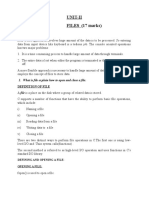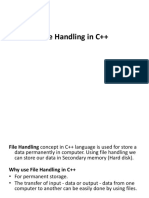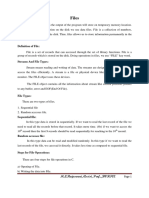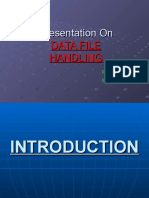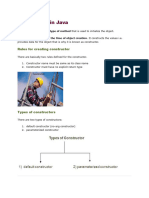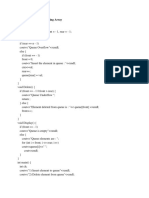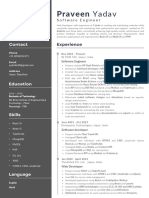0% found this document useful (0 votes)
40 views11 pagesFormatted Input Output Functions in Files
The document provides an overview of formatted input/output functions in files using C++, including functions like put(), get(), write(), and read(). It explains file pointers, their default actions, and functions for manipulating file pointers such as seekg() and seekp(). Additionally, it covers detecting the end of a file using the eof() function and includes a sample program demonstrating these concepts.
Uploaded by
antarasartale11Copyright
© © All Rights Reserved
We take content rights seriously. If you suspect this is your content, claim it here.
Available Formats
Download as PDF, TXT or read online on Scribd
0% found this document useful (0 votes)
40 views11 pagesFormatted Input Output Functions in Files
The document provides an overview of formatted input/output functions in files using C++, including functions like put(), get(), write(), and read(). It explains file pointers, their default actions, and functions for manipulating file pointers such as seekg() and seekp(). Additionally, it covers detecting the end of a file using the eof() function and includes a sample program demonstrating these concepts.
Uploaded by
antarasartale11Copyright
© © All Rights Reserved
We take content rights seriously. If you suspect this is your content, claim it here.
Available Formats
Download as PDF, TXT or read online on Scribd
/ 11











































